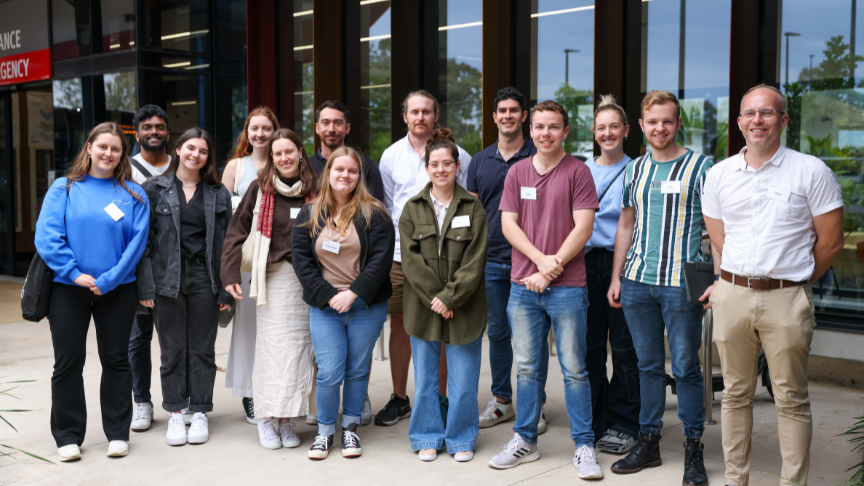
Download high resolution image [JPEG 1.9 MB]
Kingaroy Hospital welcomed fifteen Year 1 medical students from The University of Queensland (UQ) last weekend, allowing them to get a valuable insight into regional healthcare during the four-day immersion.
The inaugural Immersion Program is part of UQ’s new Doctor of Medicine Program which has been supported by Darling Downs Health through advocacy and partnership arrangements.
For Kate Vance, a Year 1 student, the immersion in a rural environment was something new and exciting that lifted the veils on what it’s like to be a rural doctor.
“I’ve never been to Kingaroy and already I’ve been surprised by how big the hospital is. I’m looking forward to finding out what makes Kingaroy an attractive place for medical staff who choose to work in a rural setting,” Ms Vance said.
“The speciality that I’m wanting to do – ophthalmology, is really needed in regional and rural communities and I’d like to do outreach into these areas.”
Hailing from Bundaberg, fellow Year 1 student, Chelsea Powis said the rural immersion program was an opportunity to get involved in the region and see what goes on, not just in the hospital but also around within the community.
“Rural healthcare is so important and I’m looking forward to seeing what health services are available in a smaller town and how the doctors interact with and care for their patients.”
Executive Director Queensland Rural Medical Service, Dr Hwee Sin Chong said providing an early opportunity for students to experience rural healthcare environments was a key factor in influencing their future decision as to where they’d like to work.
“We know that by providing an opportunity for students to immerse themselves into regional and rural healthcare settings at the start and throughout their studies can really influence where they choose to work."
As a key partner in the UQ Doctor of Medicine Program, Darling Downs Health continues to identify and implement opportunities that reinforce the positive choice and contribution students can make when choosing to work in regional and rural healthcare settings.